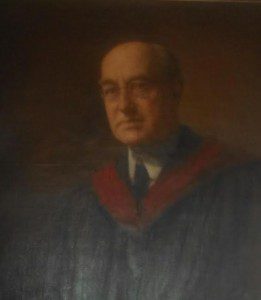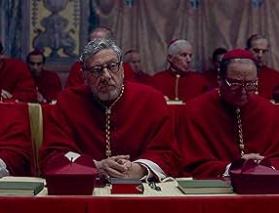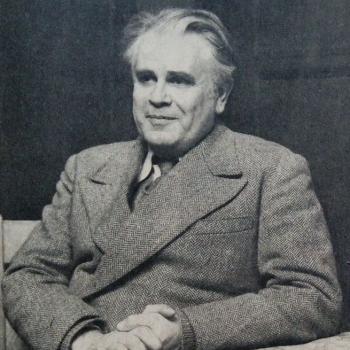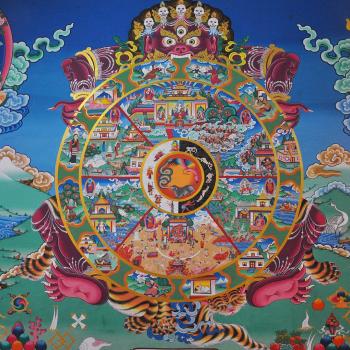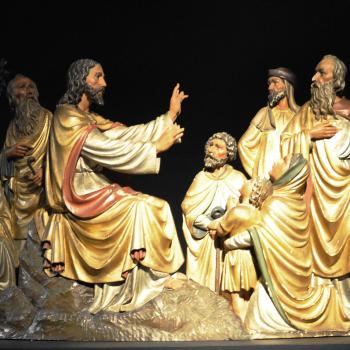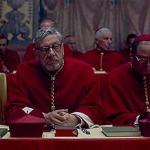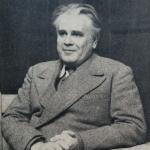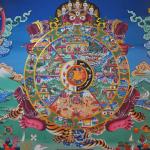Earlier today I was rummaging through a little pile of sermons delivered by my predecessor as minister of the church I serve, the First Unitarian Church of Providence, the Reverend Dr Augustus Mendon Lord (the picture shown here is from his portrait which hangs in one of our church’s parlors), who served here in Providence between 1890 and 1931. I’ve often wondered about someone with the name Augustus Lord, and what that must have meant in his life. Given that as I read into his sermons a little I was a bit surprised as I found I was quite taken with him.
Then I turned to his sermon “Bolshevism and the Churches,” preached in 1919.
I certainly was curious what my illustrious predecessor had to say on the subject, particularly as our congregation in those days was particularly the congregation of the well to do as well as the highly educated. (We’ve lost much of the well to do as we moved relentlessly along the twentieth century from liberal Christian to liberal with Christians, although maintaining that highly educated tone, for both good and for ill…)
He began his sermon with an anecdote I was unfamiliar with.
“Dr William Ellery Channing, the founder of the Unitarian Church in America, had a brother who as a physician. One day when the physician was crossing Boston Common a stranger hurried after him and touching him on the shoulder said, ‘Some one has just told me that you are Doctor Channing, sir, and I want you to know how thoroughly I approve of a sermon of yours I read in the paper a day or two ago.’
“‘You are mixing me up with my brother,’ was the smiling answer. ‘He preaches. I practice.'”
I liked that. And it set up the rest of his sermon rather nicely.
He went on to describe how in Russia religion and its clergy of all stripes were condemned as parasites. Something in the news of the day.
He then stated, “I am no apologist for things as they are.” And he enumerates some of what he didn’t support. He was particularly disdainful of a church that existed to serve the powerful.
He then spoke about the ability of people to think for themselves, and he is pretty clear he means people beyond his highly educated congregation. He stated how people are able to think for themselves, given the chance. And he emphasized that given a chance…
He described “…unjust privilege and arbitrary social and political distinctions, and against a hierarchical church and an exclusive theology which exalted such distinctions into a religion, and gave them divine sanction…” which he underscored, justly deserves the rebuke of those thinking people of whatever class.
Then he takes a turn where he seemed to be calling for or witnessing to a reformed capitalism, where people are fairly paid and have decent working conditions. The word union is never used, so I’m not quite sure how he thought that was going to happen, other than, I suspect, through the moral force of a free church.
And the sermon turns from that to a call to a spiritual life that is fully engaged with the world and informed by a sense the world itself is sacred, in some divine intertwining.
“He (Jesus) knew that sooner or later religion must come to itself in the world and welcome the messengers that come to it out of the world, not in the name of class or creed, but in the name of the Father God, who seeks his worshippers among those who will worship him in spirit and truth.
“And for that worship Jerusalem should be builded anew, a city of the soul, eternal in the heavens of the love that never fails, a communion invisible which yet shoal have some visible expression in every community, in every land, in every race and nation.
“Of that return of religion to the world, and of that return of the world to religion, the signs of the times are eloquent.”
As I read this I thought about his congregation, my congregation, our congregation now almost a hundred years later.
I admit I’m not so sanguine as he about the ability of capitalism to reform itself. But, there was so much I felt connected us across the years and generations. Frankly, I was surprised at how much.
These days we have a reputation in our town as “the social justice” church. I know it isn’t entirely deserved, nor should that title be ours alone with that “the.” But, also, it does speak to how we are generally seen, and some of how we see ourselves for the most part.
And, I know that my own small contribution to this sense of activism which I feel very much a part of, is to over and over again recall us to the fact that we are not a “social justice church,” but rather a spiritual community of reflection, who find ourselves called by virtue of coming to this church to that backward turn, to put the light on our own selves, to see who we really are, and how we really are connected. And, then, and then: from that to reach out to the world. From that great insight of connection, to work as best we can toward the healing of the world.
And I find in that hundred year old, almost, sermon, something of the same spirit.
It was kind of wonderful to find that, I have to admit.
A healing message from College Hill preached from generation to generation.
A message of hope,
Even yet.


